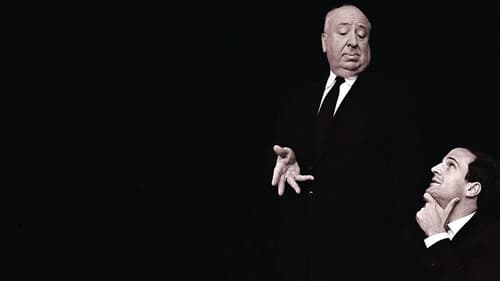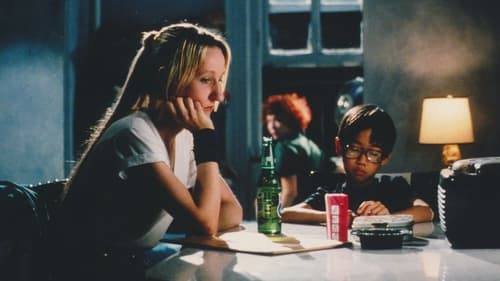
Editor
Reviewing the pursuit of democracy within the U.S. on the anniversary of the 2021 Capitol riot.

Co-Director
Audrey Flack has always been a trailblazer. Now, she returns to her canvas for the first time in decades, revealing her longtime struggles as an artist and mother to find her rightful place in the art world. Queen of Hearts is a moving portrait of a woman who is still testing, still experimenting, still searching.

Editor
1962년, 프랑수아 트뤼포는 알프레드 히치콕에게 일주일에 걸친 긴 인터뷰를 제안한다. "새", "싸이코", "현기증", "이창" 등 숱한 명작을 남긴 ‘서스펜스의 대가’ 알프레드 히치콕과 그런 히치콕을 흠모했던 씨네필이자 ‘누벨바그의 기수’였던 프랑수아 트뤼포. 일주일간의 대화 속에서 드러나는 히치콕의 작품세계와 두 감독의 우정!

Editor
Nathan Lane portrays a comic from the 1930s who plays gay men for laughs. Originally Episode 2 from Season 40 of Live From Lincoln Center on PBS.

Co-Producer
Director Martin Scorsese speaks candidly and passionately about one of his formative filmmaking influences: the late Elia Kazan. Utilizing precisely chosen clips from Kazan's signature films including "On the Waterfront," "A Streetcar Named Desire," "Gentleman's Agreement," "Baby Doll," "A Tree Grows in Brooklyn," "A Face in the Crowd," "America, America," and "The Last Tycoon," and interview footage of the director himself, co-directors Scorsese and Kent Jones recount the director's tumultuous journey from the Group Theatre to the Hollywood A-list to the thicket of the blacklist. But most of all, they make a powerful case for Kazan as a profoundly personal artist working in a famously impersonal industry.

Editor
Director Martin Scorsese speaks candidly and passionately about one of his formative filmmaking influences: the late Elia Kazan. Utilizing precisely chosen clips from Kazan's signature films including "On the Waterfront," "A Streetcar Named Desire," "Gentleman's Agreement," "Baby Doll," "A Tree Grows in Brooklyn," "A Face in the Crowd," "America, America," and "The Last Tycoon," and interview footage of the director himself, co-directors Scorsese and Kent Jones recount the director's tumultuous journey from the Group Theatre to the Hollywood A-list to the thicket of the blacklist. But most of all, they make a powerful case for Kazan as a profoundly personal artist working in a famously impersonal industry.

Editor
A chronological look at films by, for, or about gays and lesbians in the United States, from 1947 to 2005, Kenneth Anger's "Fireworks" to "Brokeback Mountain". Talking heads, anchored by critic and scholar B. Ruby Rich, are interspersed with an advancing timeline and with clips from two dozen films. The narrative groups the pictures around various firsts, movements, and triumphs: experimental films, indie films, sex on screen, outlaw culture and bad guys, lesbian lovers, films about AIDS and dying, emergence of romantic comedy, transgender films, films about diversity and various cultures, documentaries and then mainstream Hollywood drama. What might come next?

Editor
In an economically struggling small town, Jenny, a young married woman, begins an affair with June, her college-bound, African-American neighbor.

Writer
In an economically struggling small town, Jenny, a young married woman, begins an affair with June, her college-bound, African-American neighbor.

Director
In an economically struggling small town, Jenny, a young married woman, begins an affair with June, her college-bound, African-American neighbor.

Production Manager
A woman is hired to transcribe an ancient Chinese manuscript. She finds that little by little, the manuscript has powers that begin to take over her life.

Writer
"The Riverbed traces the story of a despondent drifter who stumbles across a farmhouse inhabited by a wealthy widow and her disabled daughter. Exchanging board for labour, he stays at the house. Eventually he consents to the mother's wish that he marry the girl, with his eye on financial gain. He takes the girl to the city, where the couple struggles against hardship. As the man reverts to petty theft, her health deteriorates and he is forced to take her back to the now-abandoned farmhouse." - MIFF

Director
"The Riverbed traces the story of a despondent drifter who stumbles across a farmhouse inhabited by a wealthy widow and her disabled daughter. Exchanging board for labour, he stays at the house. Eventually he consents to the mother's wish that he marry the girl, with his eye on financial gain. He takes the girl to the city, where the couple struggles against hardship. As the man reverts to petty theft, her health deteriorates and he is forced to take her back to the now-abandoned farmhouse." - MIFF

Writer
"A young woman settles into her new life in New York City, overwhelmed by the crowds and wary of human contact. Shot in moody black and white collaging a visual language reminiscent of film noir, art horror, and street photography of the 60's and 70's, Rachel Reichman’s short film exemplifies the return to narrative in independent filmmaking following the structuralist experiments of the 1970s." - MoMA

Director
"A young woman settles into her new life in New York City, overwhelmed by the crowds and wary of human contact. Shot in moody black and white collaging a visual language reminiscent of film noir, art horror, and street photography of the 60's and 70's, Rachel Reichman’s short film exemplifies the return to narrative in independent filmmaking following the structuralist experiments of the 1970s." - MoMA














